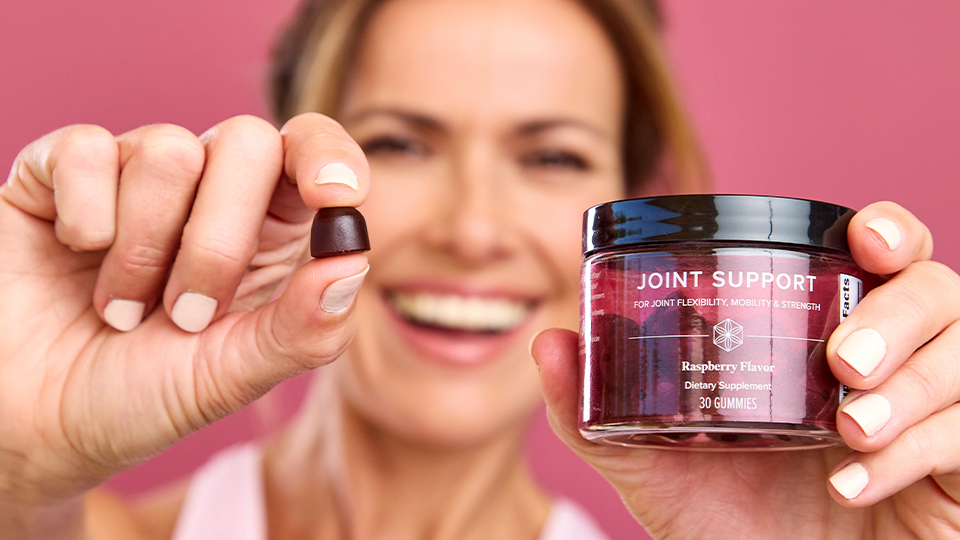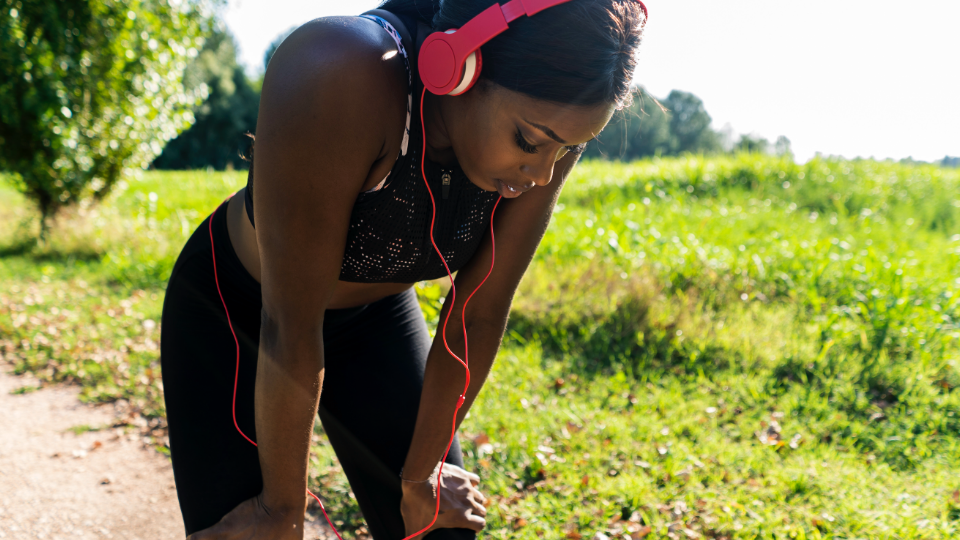Your workouts can only be as intense as your body’s ability to deliver oxygen and nutrients to working muscles while removing waste products. The transport of these metabolic materials throughout your body comes down to your circulatory system.
How should you maximize support for your circulatory system, brain, and hormone levels to improve athletic performance? We suggest the three N’s: nitrates, Nitrosigine®, and naps.
Nitrates
Dietary nitrates are natural molecules found in fruits and vegetables. When in your bloodstream, they also serve as support for blood flow to muscles. The more blood flowing around muscles, the better your stamina.
In a drink shot product, such as AMPED™ NOx, nitrates are quickly absorbed and can be converted to nitric oxide to relax and widen blood vessels, allowing for more blood flow to reach working muscles (1-4).
Here are just a few of the benefits of dietary nitrates:
- Reduced rate of fatigue from muscle contraction occurring from intense cardiovascular exercise or muscular endurance events (1).
- The effects in the body from nitrates and nitric oxide are even greater when combined with polyphenols (5-7).
- Nitrate supplementation has demonstrated improvement in oxygen use, increasing power output and time to exhaustion (2-4).
Studies suggest that nitrates will reach peak concentrations approximately two to three hours after ingestion and can stay elevated for up to 24 hours in the bloodstream (6, 8). Additionally, athletes tend to see a greater effect on performance after at least three to five days of use (6, 8).
Nitrosigine
Nitrosigine® works in a different way than nitrates by increasing availability of the amino acid arginine in the bloodstream. Arginine is a well-known precursor for the production of nitric oxide.
Recent clinical research with the patented complex of nutrients in Nitrosigine® (inositol, silicon, and arginine) demonstrated that it significantly increased plasma arginine levels for at least six hours, whereas ordinary arginine supplementation elevated plasma levels of the amino acid for only one or two hours (9).
The study also showed that Nitrosigine® supplementation resulted in over a 70 percent increase in plasma arginine levels compared to arginine alone, demonstrating greater bioavailability of Nitrosigine® as a precursor for nitric oxide production.
Nap Time
Following proper intake of dietary nitrates and Nitrosigine®, napping is the final “N” for maximizing support for your body, your brain, and your hormone levels for athletic performance. Sleep, in fact, is just as important as your training and nutritional program, because it is one of the strongest recovery mechanisms you have.
Studies suggest that napping during the day is a useful tool to enhance recovery processes, especially for those who experience loss of sleep during the night (10-12). Even small naps can aid in promoting healthy release of hormones such as melatonin, growth hormone, and sex hormones for aiding in muscle growth and recovery (10-13).
Aim for 15 to 20 minutes in a relaxing and quiet environment. Extended sleep periods are ideal for athletic performance, but napping can help fill the gap when longer sleep isn’t possible.
A Challenge for Next-Level Athletic Training
Don’t expect that you’ll simply just start seeing performance gains right away by integrating each of the three N’s into your program. Try implementing the three N’s into your workout routine for the next 90 days. Stay consistent, and see where your performance goes.
Nitrosigine® is a registered trademark of Nutrition 21, LLC and is patent protected.
References
- Wylie LJ et al. Dietary nitrate supplementation improves team sport-specific intense intermittent exercise performance. Eur J Appl Physiol. 2013 Jul; 113(7):1673-84.
- Bailey SJ et al. Dietary nitrate supplementation reduces the O2 cost of low-intensity exercise and enhances tolerance to high-intensity exercise in humans. J Appl Physiol. 2009; 107:1144-55.
- Cermak NM et al. Nitrate supplementation’s improvement of 10-km time-trial performance in trained cyclists. Int J Sport Nutr Exerc Metab. 2012; 22:64-71.
- Jones AM et al. Influence of dietary nitrate supplementation on exercise tolerance and performance. Nestle Nutr Inst Workshop Ser. 2013; 75:27-40.
- Barona J et al. Grape consumption increases anti-inflammatory markers and upregulates peripheral nitric oxide synthase in the absence of dyslipidemias in men with metabolic syndrome. Nutrients. 2012 Dec 6; 4(12):1945-57.
- Li SH et al. The acute effects of grape polyphenols supplementation on endothelial function in adults: meta-analyses of controlled trials. PLoS One. 2013 Jul 24;8(7):e69818.
- Ignarro LJ et al. Pomegranate juice protects nitric oxide against oxidative destruction and enhances the biological actions of nitric oxide. Nitric Oxide. 2006 Sep; 15(2):93-102.
- Clements WT et al. Nitrate ingestion: a review of the health and physical performance effects. Nutrients. 2014 Nov 18; 6(11):5224-64.
- Komorowski J & Ojalvo SP. A Pharmacokinetic evaluation of the duration of effect of inositol-stabilized arginine silicate. Presented at the 2016 Experimental Biology Scientific Meeting, San Diego, CA, USA. 2-6 April 2016.
- Halson SL. Sleep in elite athletes and nutritional interventions to enhance sleep. Sports Med. 2014 May; 44 Suppl 1:S13-23.
- Betts JA, Stokes KA, Toone RJ & Williams C. Growth-hormone responses to consecutive exercise bouts with ingestion of carbohydrate plus protein. Int J Sport Nutr Exerc Metab. 2013 Jun; 23(3):259-70.
- Marshall GJ & Turner AN. The Importance of Sleep for Athletic Performance. Strength cond. 2016 Feb; 38(1): 61 – 67.
- Waterhouse J, Atkinson G, Edwards B & Reilly T. The role of a short post-lunch nap in improving cognitive, motor, and sprint performance in participants with partial sleep deprivation. J Sports Sci. 2007 Dec; 25(14):1557-66.





